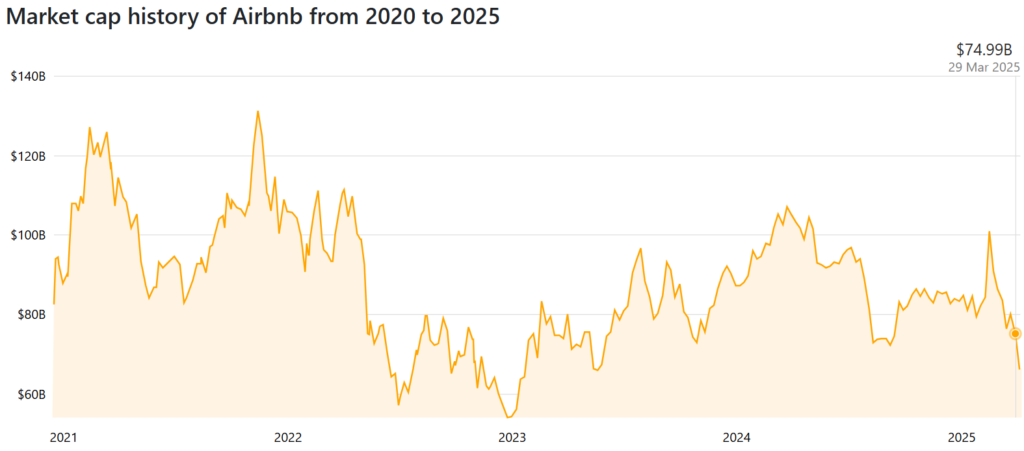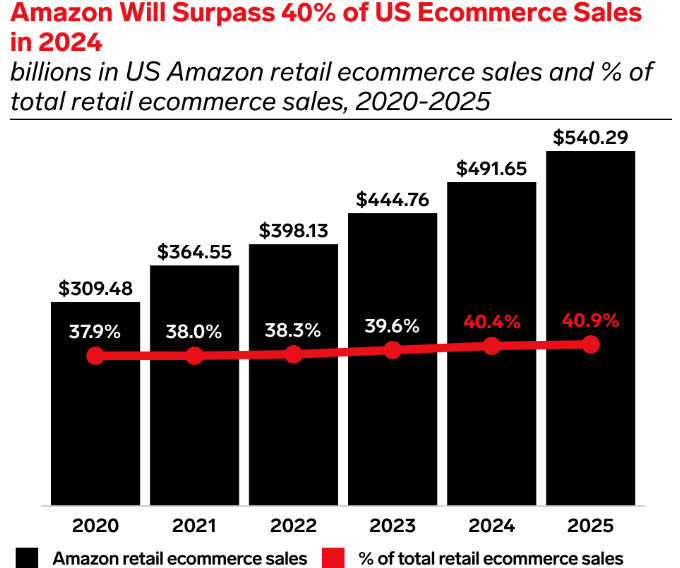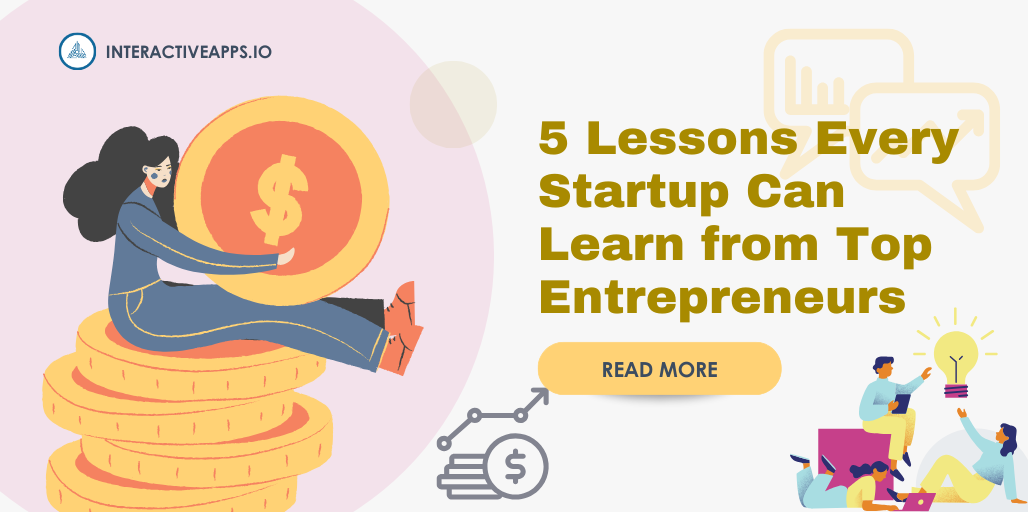Success doesn’t happen by accident. The world’s best entrepreneurs didn’t just stumble into greatness. They built it one decision at a time. They made mistakes, learned the hard way, and shared their stories so others wouldn’t have to repeat them. For startups still finding their footing, those lessons are worth gold.
Below are five powerful lessons drawn from the journeys of entrepreneurs who built some of the most recognized companies in the world. These are not theories. Each one comes from what actually happened — backed by real data, stories, and examples.
Lesson 1: Solve a Real Problem, Not a Trend
Many startups fall into the trap of chasing shiny ideas. It’s tempting to follow the hype — blockchain, AI, the next social media wave. But those who build lasting businesses solve problems people genuinely face.
When Brian Chesky and Joe Gebbia founded Airbnb in 2008, they weren’t trying to jump on a trend. They were broke in San Francisco and couldn’t afford rent. They noticed hotel rooms were sold out during a design conference and decided to rent out air mattresses in their apartment. That was it. They solved a real problem — people needed a place to sleep.
Fast forward to today, Airbnb’s market cap is over $66 billion as of April 2025. They didn’t build something “innovative.” They simply created something useful.

A survey from CB Insights found that 35% of startups fail because there’s no market need. That’s the number one reason for failure. No matter how flashy your tech is or how beautiful your product looks, if nobody needs it, it won’t last.
Key takeaway: Look for pain points people deal with daily. Build for them, not for investors or headlines.
Lesson 2: Start Small, Then Grow with Intent
Jeff Bezos started Amazon by selling books. Just books. He didn’t try to build “The Everything Store” on day one. He started with one product category he could manage, dominate, and learn from.
In an interview from 2000, Bezos explained that the reason books came first was because they had a massive catalog, were easy to ship, and had global demand. That insight came from simple reasoning, not rocket science.
Fast-forward 30 years — Amazon will hold 40.9% of the U.S. e-commerce market by 2025. That dominance came from methodical growth, not chaotic expansion.

Reid Hoffman, co-founder of LinkedIn, has a rule: “If you’re not embarrassed by your first product, you’ve launched too late.” He’s not romanticizing scrappy beginnings. He’s talking about momentum. The idea is to build fast, release early, and improve in public.
Paul Graham, the co-founder of Y Combinator, tells startups to “do things that don’t scale” early on. Handheld users. Manually onboard customers. These small actions build trust and create feedback loops that help your product improve faster than any market study could.
Key takeaway: Start with less than you think you need. Grow with purpose. Don’t sprint into complexity before mastering the simple things.
Lesson 3: Build a Culture Before a Brand
People often think brand is the logo, colors, or a slick website. But the strongest brands grew out of strong cultures first.
Take Patagonia. Founder Yvon Chouinard didn’t set out to build a billion-dollar outdoor brand. He just wanted better climbing gear. Over time, Patagonia’s culture of environmental activism, ethical labor, and transparency became its brand identity.
In 2022, Chouinard gave away his company — worth around $3 billion — to a trust and nonprofit. The mission? Fight climate change. That wasn’t a PR stunt. It was in line with the company’s culture from day one.
A study from Glassdoor showed that 77% of workers consider a company’s culture before applying for a job. Startups that bake values into their DNA from the beginning attract better talent, retain it longer, and avoid messy PR disasters later on.
Tony Hsieh did the same with Zappos. Customer service was the heartbeat of the company. In fact, Zappos once sent flowers to a grieving customer — unprompted — after a support rep heard her story. No upsell. No viral campaign. Just empathy turned into action. That’s culture.
Key takeaway: Culture shapes everything — hiring, product, customer experience. Set the tone early and let the brand grow out of that.
Lesson 4: Know When to Pivot and When to Persist
Startups don’t fail because of one bad idea. They fail because founders don’t know when to let go of one and move to the next.
Instagram didn’t start as Instagram. It began as Burbn — a location-based check-in app loaded with features. Nobody used it. The team noticed that people only cared about one thing: the photo sharing. So they stripped everything else and doubled down. The result? 1 billion users by 2024 and a massive influence on how people communicate visually.
According to Harvard Business, 70% of successful startups pivot at least once. Not because they gave up. But because they were listening.
Persistence isn’t about sticking with one idea forever. It’s about staying committed to solving a problem, even if the path changes. Slack is another famous pivot. It was born out of a failed gaming startup. The team’s internal messaging tool turned out to be the real winner. So they ran with it.
But not all pivots work. Theranos tried to pivot, stretch the truth, and hide behind buzzwords. That ended with criminal charges. The lesson? Pivot with honesty, based on user behavior and hard data — not dreams.
Key takeaway: Be loyal to the problem, not your first idea. Change course when the evidence tells you to.
Lesson 5: Build Relationships, Not Just a Network
Every entrepreneur knows the value of connections. But the best ones don’t just collect contacts — they build trust.
When Elon Musk was struggling to keep Tesla alive in 2008, he didn’t just raise money from investors. He put in his last $40 million, even borrowing from friends. He bet everything — and his relationships backed him. By 2025, Tesla is not just be surviving. It’s valued at over $800 billion and pushing into new markets.
Startup circles often focus too much on “networking events” and not enough on real human bonds. The truth? Your co-founder, your first five hires, your early investors — these folks will shape the future of your company. Pick them with care.
Ben Horowitz says, “Take care of the people, the products, and the profits — in that order.” He’s not just being nice. He’s pointing at a long-game strategy. Relationships built on respect last longer than handshakes made for convenience.
Research from Stanford (2023) shows that startups with strong founding teams outperform solo founders by 163% in revenue growth. Why? Trust compounds. Good teams fight smarter. They hold each other accountable. They’re honest when things go south.
Key takeaway: Build deep, honest relationships. They’re worth more than seed money or PR buzz.
Final Thoughts
These five lessons aren’t flashy. They don’t promise overnight success or unicorn status by the next quarter. But they’re what the best founders lived, not just what they preached.
- Solve problems that matter.
- Start simple and scale with clarity.
- Build a culture before a brand.
- Pivot when needed, persist when it counts.
- Prioritize real relationships over rapid reach.
Startups that follow these paths may not go viral tomorrow. But they’ll build something that lasts. And in a world full of short attention spans and quick exits, staying power is the real flex.



